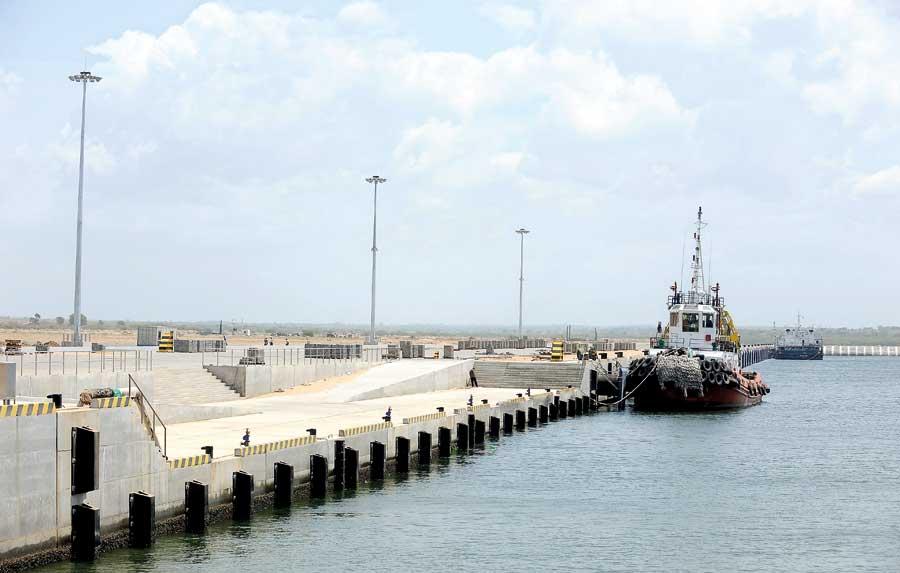16 Jun 2021 - {{hitsCtrl.values.hits}}

The Sri Lankan Understanding is a weekly platform which highlights issues of relevance to the island nation by examining the journey taken in the past, the present status and the potential for the future. Bringing together academics, historians, diplomats, writers and key personalities, The Sri Lankan Understanding is aimed at filling a lacuna in society wherein comprehending that which has been, grasping realties, and understanding the opportunities ahead are sorely lacking.
examining the journey taken in the past, the present status and the potential for the future. Bringing together academics, historians, diplomats, writers and key personalities, The Sri Lankan Understanding is aimed at filling a lacuna in society wherein comprehending that which has been, grasping realties, and understanding the opportunities ahead are sorely lacking.
The sixth episode on ‘Shipping: Innovating in the Maritime Sector’ featured Rohan Masakorala, Chief Executive Officer of the Shippers’ Academy Colombo. A Founding Partner of the Singapore Shippers Academy, he has served as a consultant to the United Nations International Trade Centre in Geneva and is a UNESCAP certified trainer on global supply chains and logistics. His tertiary education in Business Administration and Marketing is from the Connecticut State University, and he is an alumnus of the Houston University Texas, USA and Cranfield University in the United Kingdom.
|
Rohan Masakorala |
Discussing connectivity that shipping affords, Masakorala observed that from time immemorial global trade started linking continents, supporting the creation of empires, value being moved from one region to another, along with wealth and resources, and it was shipping that played the most vital role. He stressed that amidst these international developments, the Indian Ocean island of Sri Lanka was always a key to travelers, traders and conquerors, given the logistical positioning of the country. Highlighting the reliance on wind patterns to move across oceans, Masakorala noted that Sri Lanka became a key destination in this part of the world. The history experienced by the country continued to evolve over the centuries and Sri Lanka still remains that important point in the Indian Ocean.
With traders visiting Sri Lanka even before the colonizers started coming, Masakorala pointed out that even during the times of the ancient kings elephants in particular had been traded, and trading did not commence with colonialism. However he noted that colonization brought in more trade, especially during the growth of the British Empire, with the East India Company moving into this part of the world, as Sri Lanka became a key node. They started the major ports in Galle, Colombo, and Trincomalee, which was particularly used for the shipment of tea. He highlighted how the three main exports of tea, rubber and coconut were generated through the colonization process with the trade of spices also developing further.
"From time immemorial global trade started linking continents, supporting the creation of empires, value being moved from one region to another, along with wealth and resources, and it was shipping that played the most
vital role"
Elaborating further on Trincomalee, he noted that much potential was seen for this port for the island nation, with the British constructing the oil tanks in Trincomalee for long-term development of the natural deep port to become a major shipping centre, not just in South Asia but in fact for the whole of Asia. Given that Sri Lanka sits in the middle of the Indian Ocean Mr Masakorala claimed that the country has the best geographical position from all the existing hubs, although various drawbacks caused a faltering of development.
Reflecting upon the decision taken to open the economy in the late 1970s, Masakorala welcomed the decision as Sri Lanka was taking the lead in South Asia, but questioned whether the right reforms were carried out in the ensuing periods. Whilst the country became industrialised, the services sector expanded heavily and the country progressed to middle income status much greater progress could have taken place. He noted a lack of consistency in policy was a crucial factor for this occurrence. Noting the contribution made by Ministers Lalith Athulathmudali and Ronnie De Mel, who were heavily involved in the opening of the economy, he claimed that they had vision but it unfortunately collapsed with the outbreak of the war.
"Colonization brought in more trade, especially during the growth of the British Empire, with the East India Company moving into this part of the world, as Sri Lanka became a key node"
Focusing on the future, Masakorala reiterated that shipping will remain a key connectivity mode as it is economical and scalable. Given that Asia is an important developing market in the world as populations grow, there will be a boost to intra-Asian trade, global trade, manufacturing and the consumer market and Sri Lanka is seen as a gateway to these nations. This, he stressed is where Sri Lanka needs to move beyond a transshipment hub into an excellent maritime centre, for which the island nation needs consistent policies.
The Sri Lankan Understanding which is geared towards generating an interest and intrigue in the multifaceted aspects of the country airs every Wednesday, with repeats on Thursday and Sunday on HiTV and is available on Youtube. The programme is for those keen on gaining a clearer perception of the historic features, and prospective facets of the pearl of the Indian Ocean, as it covers a gamut of issues.
16 Apr 2024 3 hours ago
16 Apr 2024 5 hours ago
16 Apr 2024 5 hours ago
16 Apr 2024 6 hours ago
16 Apr 2024 6 hours ago